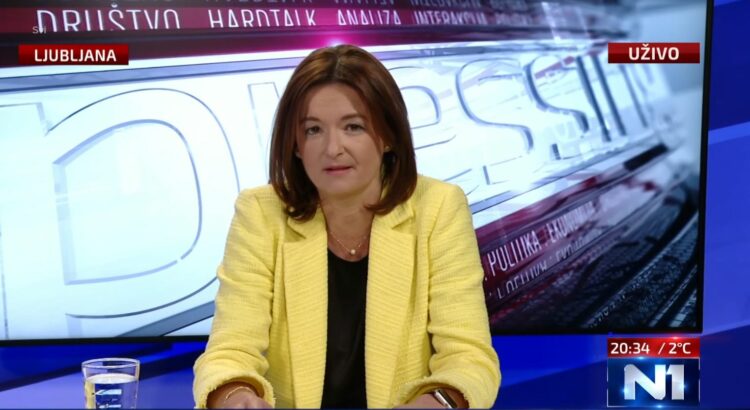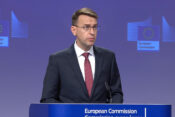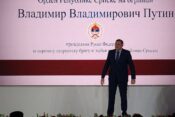
Slovenia’s Foreign Affairs Minister, Tanja Fajon, told N1 ahead of her upcoming visit to Sarajevo that the decision of authorities in BiH’s Republika Srpska (RS) entity to award Russian President Vladimir Putin is “quite difficult to understand and unacceptable” and expressed concern about tensions in the region as the war in Ukraine is ongoing.
RS President, Milorad Dodik, revealed on Sunday that Putin is the recipient of the Order of Republika Srpska this year, adding that the Russian president deserved it because of his “patriotic concern and love” for the RS.
“The EU condemned this move. I was surprised,” Fajon said, pointing out that Putin and his regime are “waging a brutal war and aggression in Ukraine that has changed the entire world.”
“Ukraine is at war, and when someone at this time awards a leader who is starting a war, I think it is quite difficult to understand and unacceptable,” she said.
“At this moment, there is no discussion on the introduction of sanctions, but we are certainly following the situation,” Fajon said, expressing concern about “tensions that could go in the direction of secession or conflicts” in the region.
“I expect that Dodik and other leaders in Bosnia and Herzegovina will understand that reconciliation is needed now, and not additional tensions or conflicts,” she stressed.
Fajon said that the EU sent a “symbolic message” to BiH when it granted the country candidate status, noting that the war in Ukraine significantly accelerated the process of BiH’s EU integration.
“If you would have asked me half a year ago if it was possible for BiH to get candidate status, I would probably have said no. But then the war happened, and Slovenia took the initiative, I'm glad that I raised this issue when no one was talking about it, and a few months later we discussed it and found a political compromise,” she said.
Fajon commented on the continuous threats coming from some officials who want to see Bosnia’s Republika Srpska (RS) entity secede from the country.
She stressed that the EU negotiates with states and not with parts of a state.
“When it comes to the threat of secession of a part of Bosnia and Herzegovina, I will always say that we, as the EU and the international community, are engaging with and talking to a state, that is Bosnia and Herzegovina, which has a European perspective, which today has the status of a candidate and will follow this path with all necessary reforms,” she said.
Fajon pointed out that BiH needs to implement reforms in 14 priority areas which the European Commission determined in its assessment of the country, but noted that these reforms are also important for the lives of all citizens.
“Some of the reforms are already on track, but there is still a lot of work to do. Now everything is in the hands of the politicians, but Slovenia, as a friendly country, will provide all the support and experts if necessary to help it go faster through this process,” she said.
“Slovenia is a great friend of Bosnia and Herzegovina,” Fajon said, noting that her country played an important role in the decision to grant EU candidate status to BiH.
She said she is looking forward to her visit to Sarajevo and that she will meet with BiH officials to discuss ways in which Slovenia could help BiH.
“Now we are at a moment when Bosnia and Herzegovina and all responsible politicians should take advantage of this opportunity. The EU extended its hand, now it is up to the politicians in BiH to grasp it,” she said.
Fajon stressed that the EU sent a “very significant, symbolic message” to BiH that it has a European future.
“The message is clear, we want BiH to join the EU, have a clear European perspective, and have a shared future with the EU. It is a new moment in the process of bringing Bosnia and Herzegovina closer to the EU. I am aware that today we need each other more than perhaps ever in history,” she said.
“This is also significant for young people who today do not have clear perspectives and visions for their country. Many young people – and I talk to them – are looking for an opportunity, a job or to study somewhere far from home in the EU and that is not the best future when young people have no perspective to stay at home,” she added.
The way to remedy this is, according to Fajon, is for BiH authorities to gain “credibility and the trust” of young people by providing them with opportunities, a quality education system and jobs.







Kakvo je tvoje mišljenje o ovome?
Budi prvi koji će ostaviti komentar!